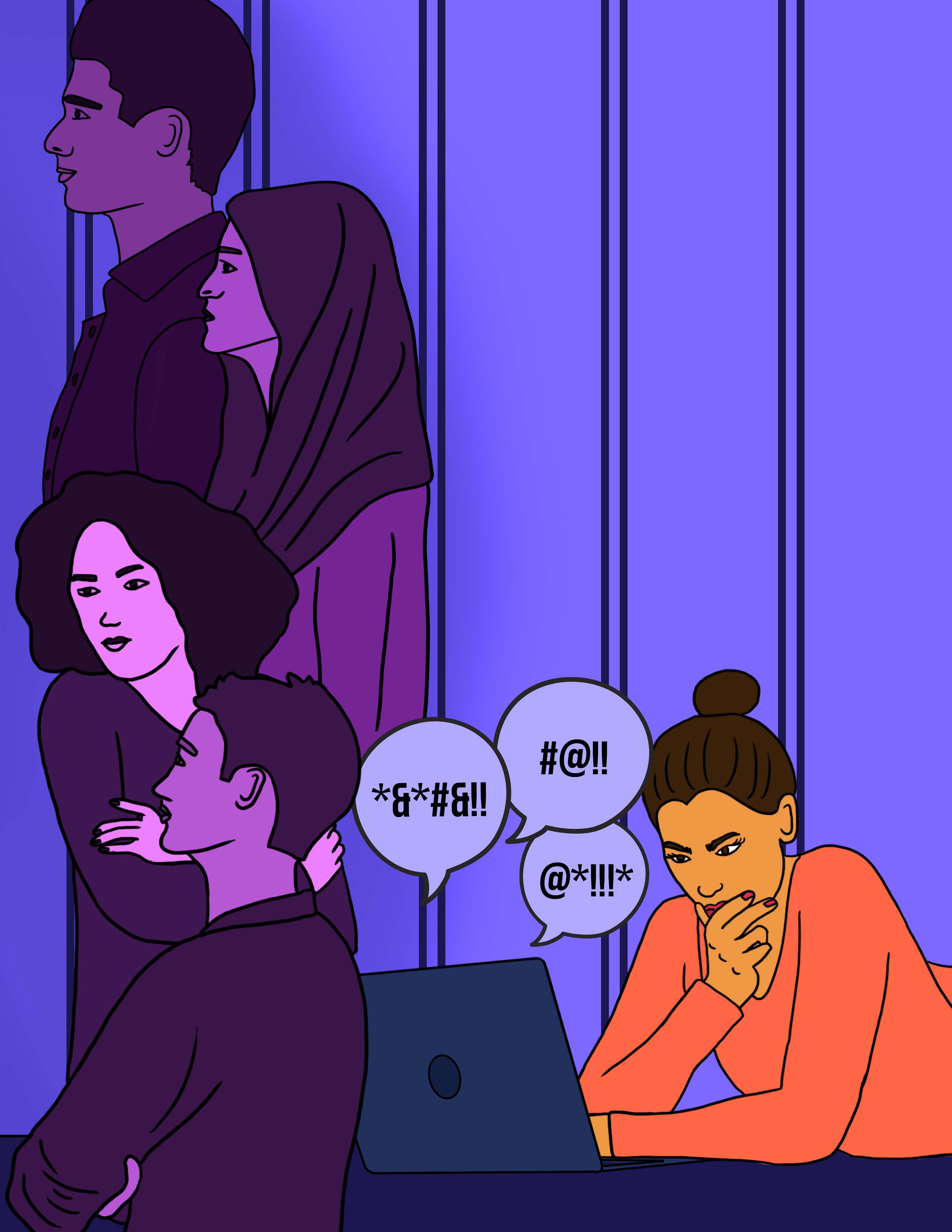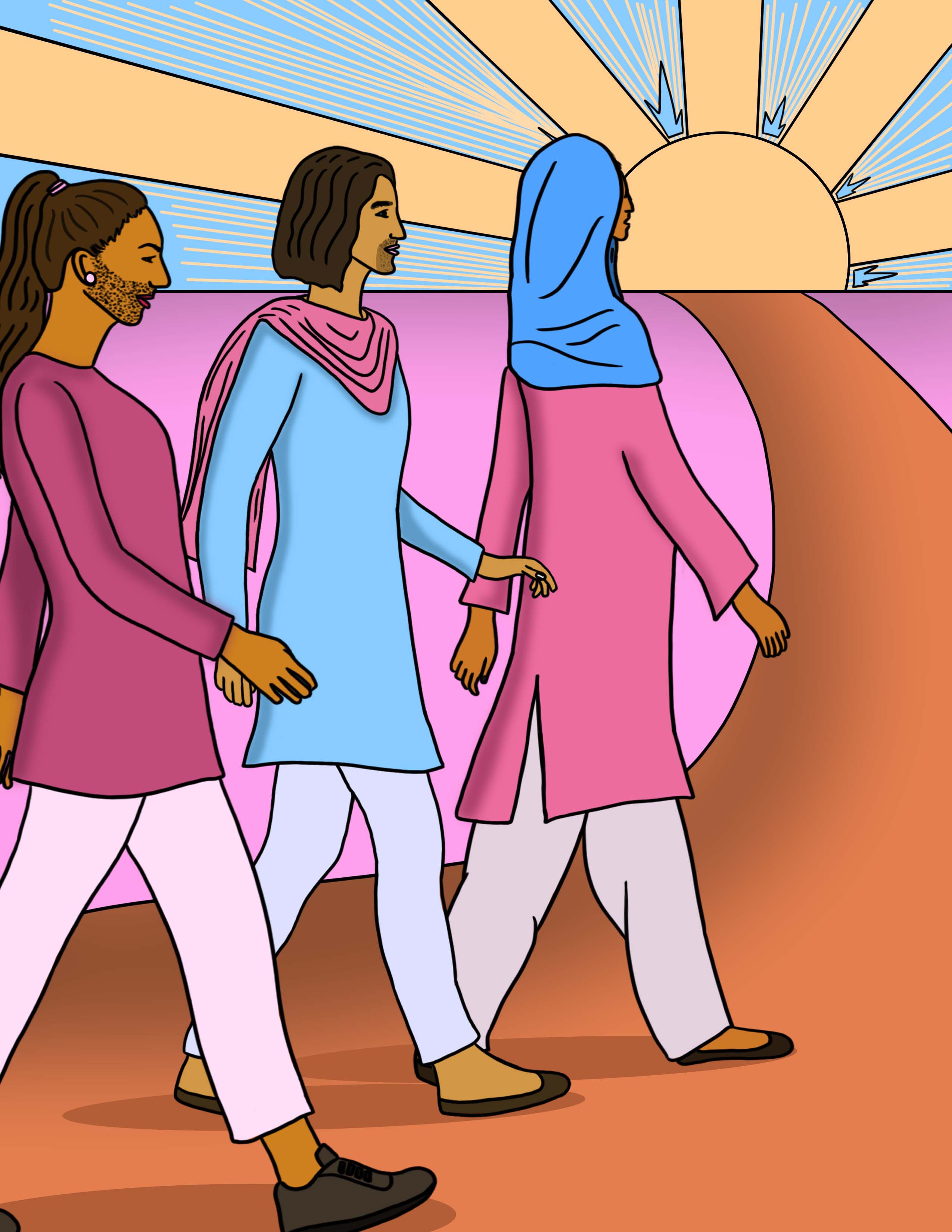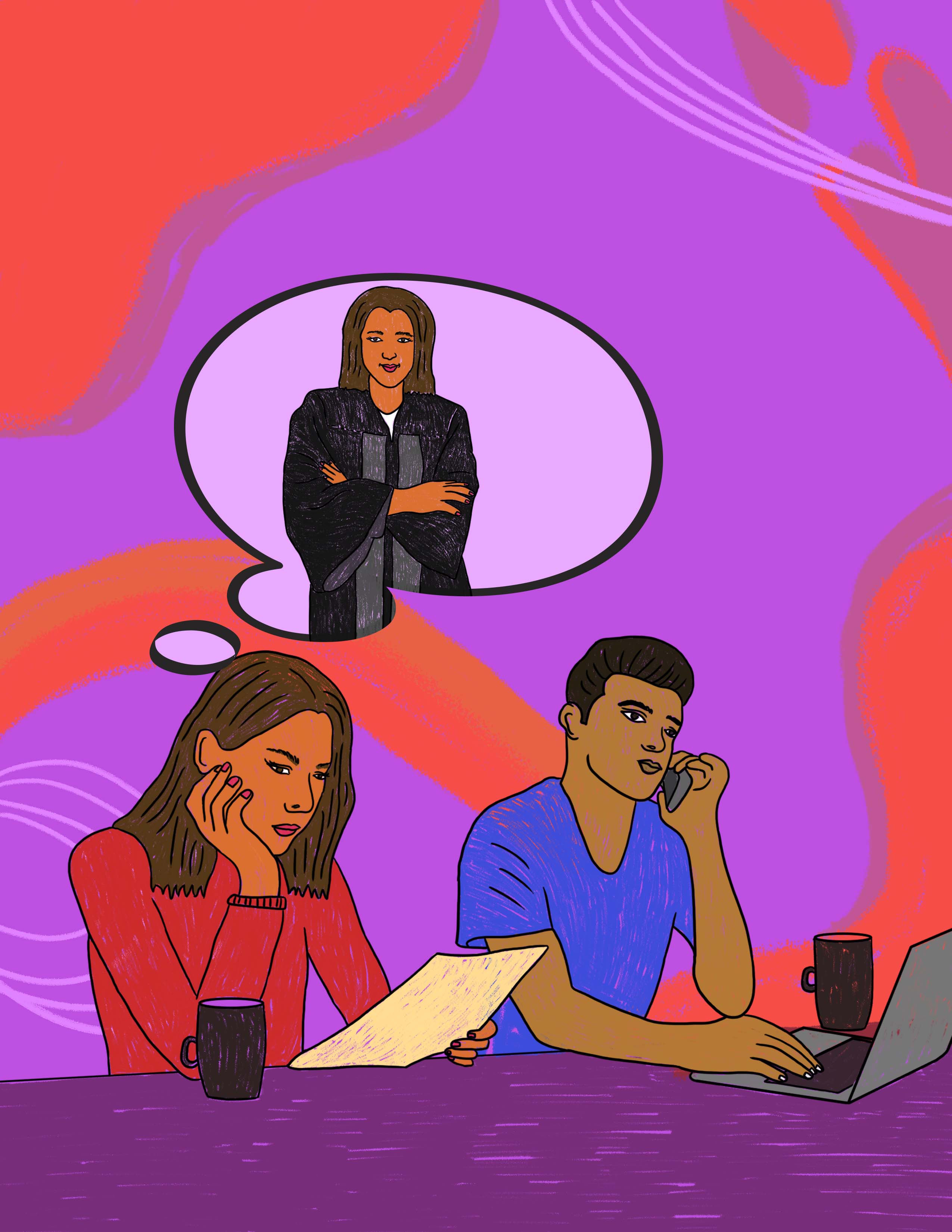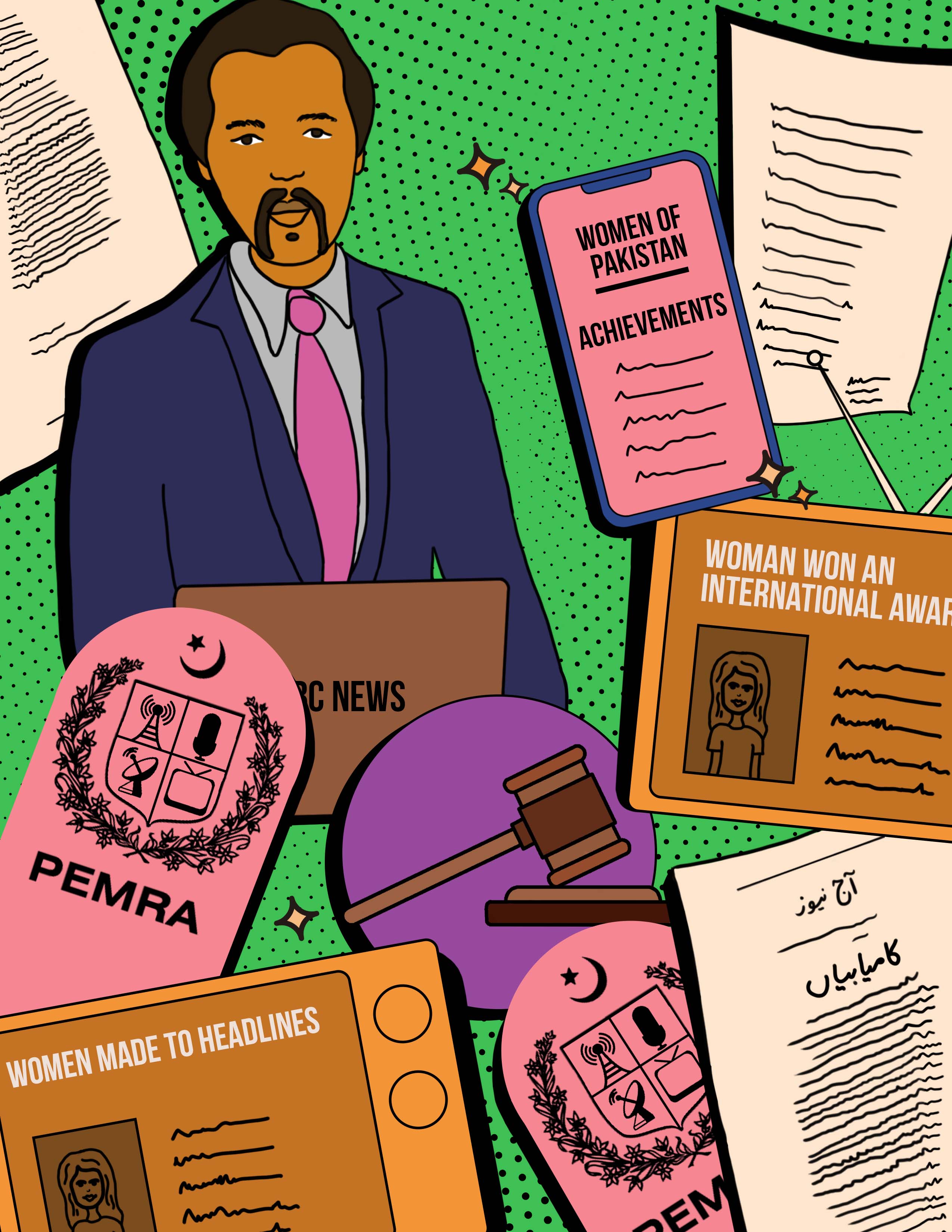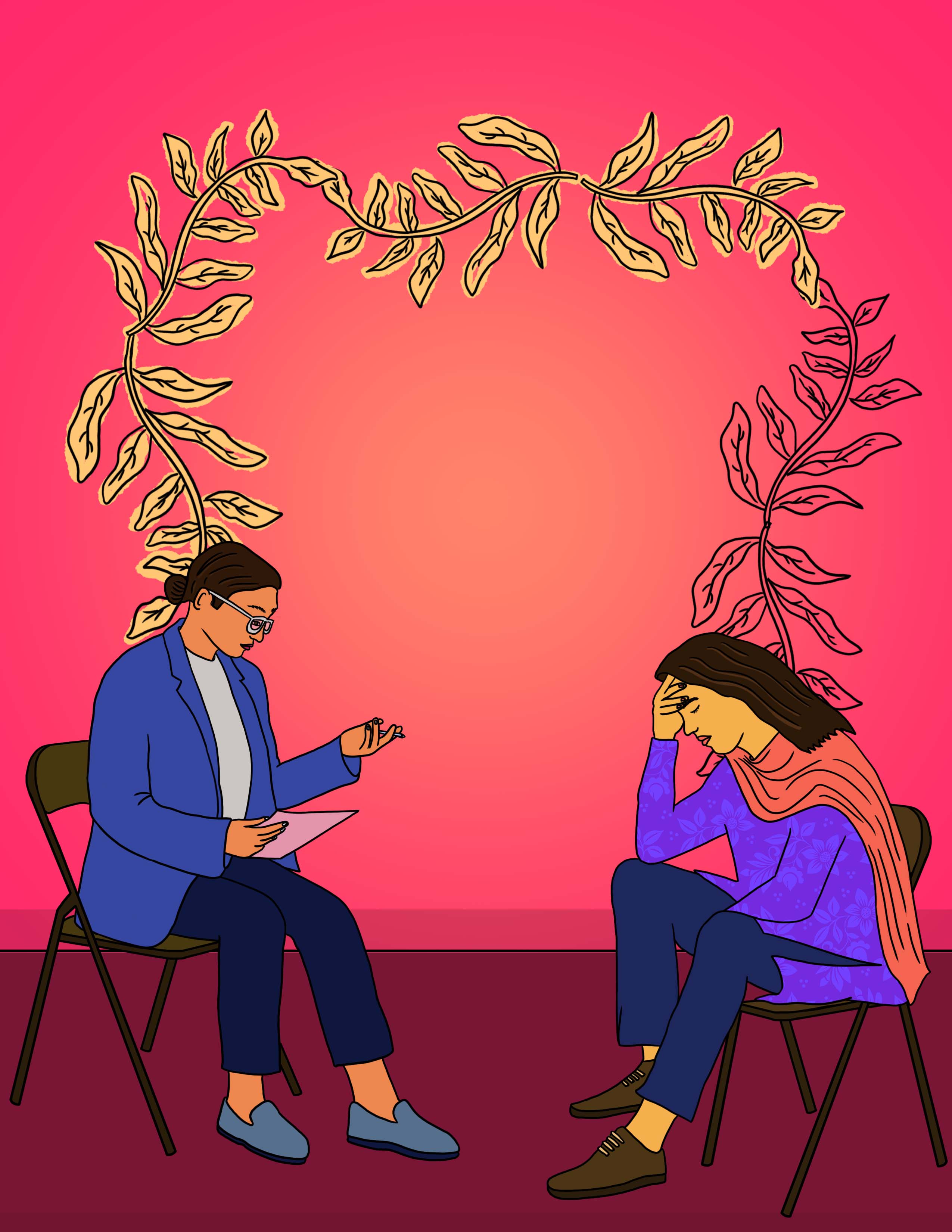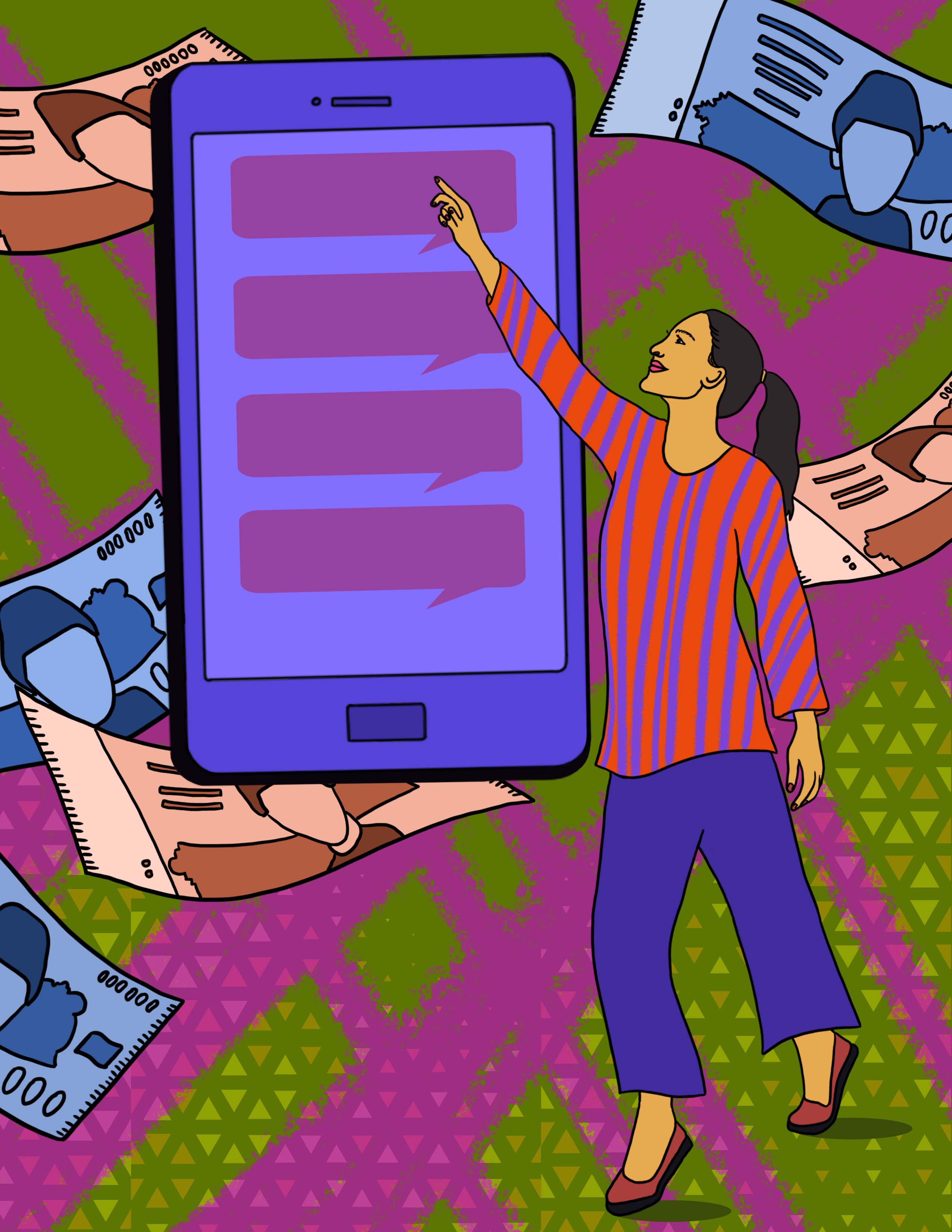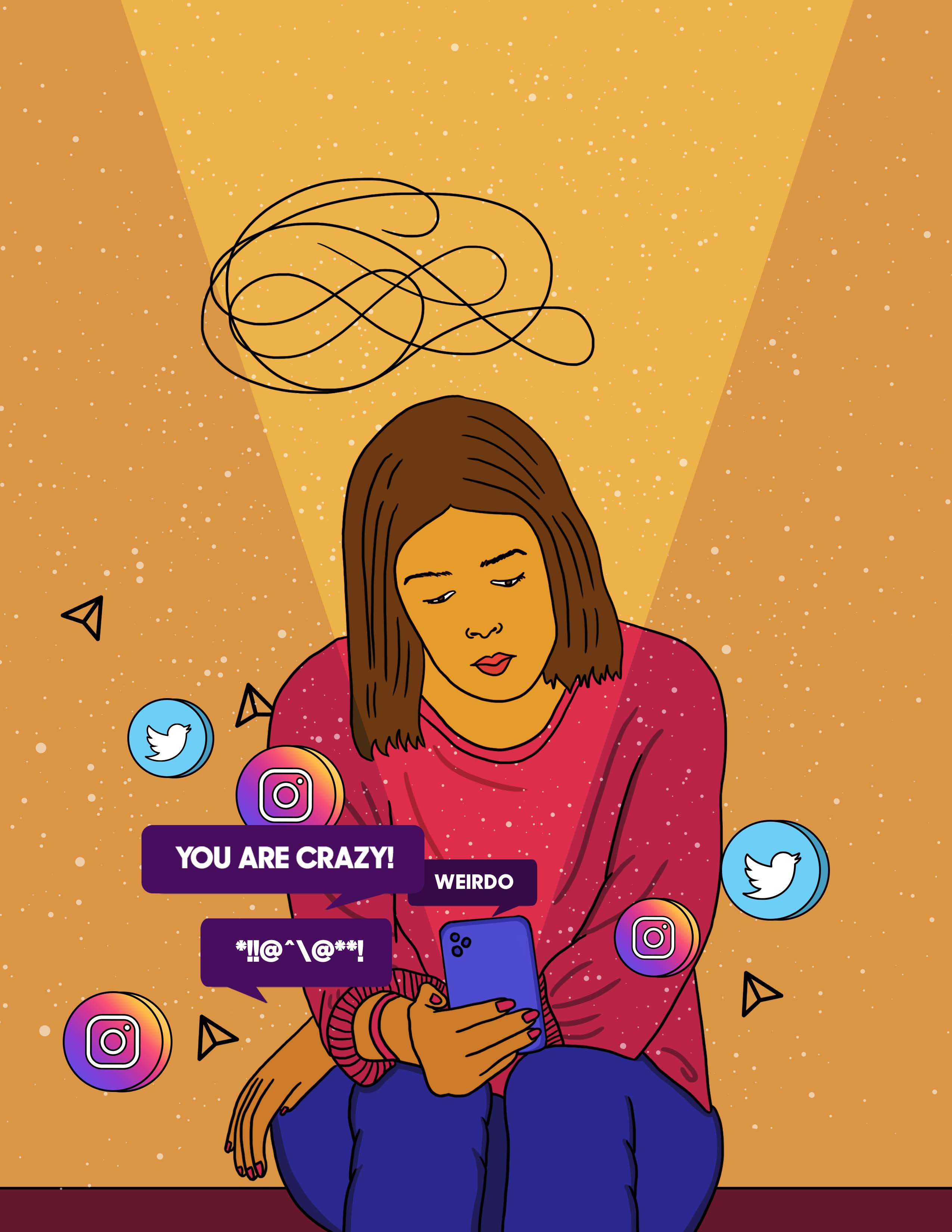December 13, 2023 - Comments Off on November 2023 Newsletter: DRF begins its 16 Days of Activism Campaign
November 2023 Newsletter: DRF begins its 16 Days of Activism Campaign
DRF launched its Whatsapp Disinformation Tipline
Digital Rights Foundation is documenting instances of gendered disinformation through our Disinformation Whatsapp Tipline. You can send us a screenshot or link on DRF's Whatsapp Tipline on 03013249539 and help us document and counter gendered disinformation online!
DRF launched the 4th Edition of Digital 50.50 - ‘Elections in the Digital Age’
This edition examines how digital tech will affect elections, democracy, and social media in the upcoming Pakistan elections.
Our team also held an X space to discuss the edition with our contributors.
Read it here: https://digitalrightsfoundation.pk/elections-in-the-digital-age/
Policy Initiatives:
16 Days of Activism Against Gender-Based Violence
DRF began the 16 Days of Activism Against Gender-Based Violence campaign. It will include the 5th Edition of Digital 50.50, a Digital Art Competition, two animated videos and the launch of Countering Digital Threats Toolkit.
Follow the campaign through #16DaysofActivism
In Collaboration with Coalition Against Online Violence
DRF with the support of Coalition Against Online Violence (CAOV), produced 6 animated videos, arranged a play and developed a comic book to highlight the lived experiences of the most marginalized people in Pakistan. Keep a lookout on our campaign with the hashtag #SaanjhiKahaniyan.
Press Coverage:
Nighat Dad becomes Ciarb’s first female Muslim Pakistani Trustee
https://www.ciarb.org/news/nighat-dad-becomes-ciarb-s-first-female-muslim-pakistani-trustee/
Nighat Dad on Geo News
DRF's Executive Director Nighat Dad talked about her new role in the UN's Artificial Intelligence (AI) Advisory Body and how most AI development is happening in isolation and that there are concerns about the lack of safety guardrails for this exponential growth.
Watch here: https://x.com/DigitalRightsPK/status/1725102813632704876?s=20
Nighat Dad on Bol News
In her interview with Bol News about becoming a member of the UN Advisory Body on Artificial Intelligence (AI), DRF Executive Director Nighat Dad praised the inclusion of people from the global south, who have traditionally been excluded from AI governance discussions. She went on to say that it is critical for the government of Pakistan to support initiatives that advance artificial intelligence in Pakistan while adhering to the international frameworks established for AI governance.
Jhoot Such Segment | PTV News
Digital Rights Foundation’s Senior Legal Associate, Irum Shujah, appeared on PTV News’ “Jhoot Such”. Throughout the segment, she provided her perspective on the Prevention of Electronic Crimes Act, 2016, delving into its impact on the general public. The conversation also delved into digital literacy, exploring the responsibility associated with using these platforms. Furthermore, the discussion covered topics such as cyberstalking, maintaining modesty in online spaces, and other crucial concepts related to cybercrimes.
https://youtu.be/yLRrKFTfzZ0?si=aU5I78_uLzcVQuw_
Jhoot Such Segment | PTV News
Seerat Khan, DRF's program lead, appeared on PTV's Jhoot Such to discuss the rampant spread of mis/disinformation, particularly through credible sources. She believes it is because media houses are competing to be the first to break news.
A year after Elon Musk bought Twitter, X is now a 'worthless' platform some say is no longer safe for activists | ABC News
Nighat Dad, DRF’s Executive Director, told Reuters that the impact of Mr Musk's staff cuts was felt immediately. Previously, when female political dissidents, journalists, or activists in Pakistan were impersonated online or experienced targeted harassment such as false accusations of blasphemy that could put them in danger, Ms Dad's group had a direct line to Twitter.
But when Mr Musk took over, Ms Dad said they struggled to get responses to requests for urgent take-downs of such high-risk content.
RSF and 16 partners unveil Paris Charter on AI and Journalism | Reporters without Borders
Nighat Dad, Executive Director of the Digital Rights Foundation, was named as a Committee member of Paris Charter on AI and Journalism that defines ethics and principles that journalists, newsrooms and media outlets around the world will be able to appropriate and apply in their work with artificial intelligence. It was created by a commission initiated by Reporters Without Borders (RSF) and chaired by journalist and Nobel Peace Prize laureate Maria Ressa.
https://rsf.org/en/rsf-and-16-partners-unveil-paris-charter-ai-and-journalism
The digital gender gap, a major obstacle to the fight for equality for women in Pakistan | EL PAÍS International
Digital Rights Foundation’s Cyber Harassment Helpline’s Annual Report was quoted in this article that stated that forty percent of Pakistani women have experienced some form of online harassment.
Digital apartheid and the use of social media algorithms in humanitarian crises | Global Voices
DRF’s Project Lead Seerat Khan penned this article. It explores the concept of "digital apartheid" in the context of social media platforms and their alleged bias in censoring, shadow banning, and removing content related to the Palestine-Israel conflict. It expresses concerns about selective amplification or suppression of voices, drawing parallels with previous incidents such as Myanmar's Rohingya crisis. The article highlights censorship-evading user tactics such as "algorithm breaks" and "fooling the algorithms." The article emphasizes the role of social media in documenting humanitarian crises and condemns perceived discrimination as a violation of human rights, resulting in digital apartheid.
Events:
Relaunch of Ab Aur Nahin
DRF relaunched its Ab Aur Nahin portal. It is a confidential legal and counselor support service portal specifically designed for survivors of harassment. It was marked through a X/Twitter space. The speakers discussed the promotion of a safer online environment for all and raise awareness about the importance of combating cyber-harassment through reporting.
Listen to it here: https://x.com/DigitalRightsPK/status/1720034065078952190?s=20
Visit https://abaurnahin.pk for more details.
Press Coverage
Annual Pakistan Association of Pathology conference
DRF was represented at the 44th Annual Pakistan Association of Pathology (PAP) Conference held on the 18th of November, 2023. DRF’s Senior Program Manager Zainab Durrani joined the conference virtually and shared highlights of DRF’s 2023 research study on ‘Data Privacy in Pakistan’s Healthcare Sector’, which maps the state of privacy as it pertains to patients and medical practitioners in Pakistan’s public and private healthcare sectors. The report sheds light on the dearth of understanding around data confidentiality and heightened protections required for personal medical data in particular, as they pertain to citizens of Pakistan.
Digital Citizen Program in Goverment Schools
Since last month, DRF has held 7 sessions in different schools across Lahore. 1170 students (females and males) and 123 teachers were informed about ways of staying safe in online spaces and reporting mechanisms incase of harassment or bullying. The participants were given gift bags with online safety resources and stationary.
Nighat Dad attended Paris Peace Forum 2023
Nighat Dad met the French President Macron at the Paris Peace Forum, where they discussed AI governance during a working dinner. Nighat has recently joined UN’s Advisory Body on AI.
Consultative Meeting on Disrupting Harm Project by the National Commission on the Rights of Child (NCRC)
On November 17, 2023, the NCRC held a meeting involving its stakeholders and members of civil society. The purpose was to gather insights and recommendations regarding cases of physical and sexual abuse involving minors. This meeting was convened to fulfill the mandate outlined in Section 15 of the NCRC Act, 2017. The Digital Rights Foundation actively participated in the session, contributing by sharing cases and statistics from its Cyber Harassment Helpline, particularly highlighting instances of online violence against minors."
Digital Well-being and Safety Fellowship
Digital Rights Foundation held the digital well-being and safety fellowship with 10 women journalists from across Pakistan from 30th October to 1st November 2023. This year DRF’s team received 170 applications from across Pakistan and 10 were shortlisted for a three-day intensive convening on online safety, legal recourse, misinformation and disinformation and well-being and self-care for women journalists. The fellowship is the third of its kind with women journalists.
Virtual Roundtable on WhatsApp Channels
DRF’s programs lead Seerat Khan and Cyber harassment helpline manager Hyra Basit participated in a virtual roundtable on WhatsApp channels by Meta in which a discussion around how to use WhatsApp channels for social causes was discussed in detail. These channels provide an enhanced way to connect with different communities, similar to other social media applications. Now, we can utilize WhatsApp Channels to improve our communication and engagement strategies across various platforms. This development opens up new possibilities for collaboration and outreach.
SIRIUS Annual Conference 2023
DRF’s program lead participated in the SIRIUS Annual Conference by EuroJust in the workshop titled, ‘Scrolling for truth' workshop’. The panel focused on Data preservation and content moderation when facing international crimes. DRF’s Seerat Khan talked in detail about DRF’s comments to Meta’s oversight board and platform accountability in content moderation policies.
Meta Trusted Partner Roundtable: Pakistan
DRF’s program team was part of Meta’s trusted partner roundtable from Pakistan focusing on online content trends in Pakistan. DRF’s team highlighted the importance of countering misinformation and disinformation on platforms particularly when elections are emerging. Concerns around the emergence of AI and deep fake technology in targeting human rights defenders, journalists and public figures was also discussed in detail.
StopNCII.org NGO network meeting
Anmol, Hyra, and Ayesha attended a virtual meeting on November 22. We talked about new things and tools that can help make it easier for people who make complaints. This means we are looking at ways to improve how our system works so that it's simpler and better for the people reaching out with their concerns. We want to ensure we use helpful features to make things easier for everyone.
Disinformation, Elections, and the Role of Platforms: Case Studies from Asia
DRF’s program lead spoke on a consultative roundtable on disinformation, elections and the role of platforms particularly from Asia. Partners from the Philippines, Pakistan and Bangladesh discussed methods of monitoring platforms during elections and countering disinformation during this time.
“I4T global epistemic community” supported by UNESCO
On November 10, 2023, the DRF took part in a UNESCO meeting focused on shaping the concept of an "Internet for Trust Global Epistemic Community." This conversation aimed to aid in the oversight of digital platforms with a global lens. The session invited various stakeholders and members of civil society to contribute, fostering a "network of networks." This was envisioned as a multi-stakeholder environment for discussions and the exchange of best practices related to regulating digital platforms. DRF participated in this initiative, sharing its observed best practices in online spaces and contributing insights toward building an epistemic online community.
Policy Committee Meeting by Global Network Initiative
On 16 November 2023, the Global Network Initiative (GNI) held a Policy Committee meeting involving different stakeholders and members of civil society. During the meeting, a comprehensive discussion was held on the Online Safety Bill currently under consideration in the Sri Lankan Parliament. The session delved into the legal challenges and concerns regarding its potential impact on fundamental rights and the democratic principles of Sri Lanka. Additionally, UNESCO guidelines were also discussed during the meeting. UNESCO stressed the importance of "multistakeholder discussion" and expressed intent to collaborate with networks such as GNI in fostering civil society participation in this initiative.
DRF Updates:
Cyber Harassment Helpline
The Cyber Harassment Helpline received 190 complaints in total October, with 87 complaints by men. If you’re encountering a problem online, you can reach out to our helpline at 0800-39393, email us at [email protected] or reach out to us on our social media accounts. We’re available for assistance from 9 am to 5 pm, Monday to Friday.
IWF Portal
DRF in collaboration with Internet Watch Foundation (IWF) and the Global Fund to End Violence Against Children launched a portal to combat children’s online safety in Pakistan. The new portal allows internet users in Pakistan to anonymously report child sexual abuse material in three different languages- English, Urdu, and Pashto.
StopNCII.org
Meta along with Revenge Porn Helpline (RPH) has launched a portal to support victims of Non-Consensual Intimate Image Abuse (NCII). NCII is a free portal for reporting cases of sensitive or sexual content existing online. Once you report a case, the necessary steps will be taken to block the images from the platform.






















